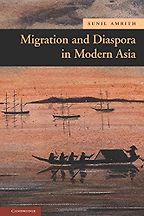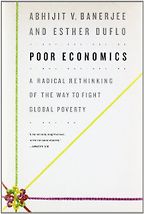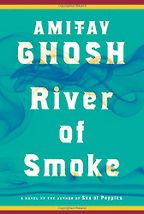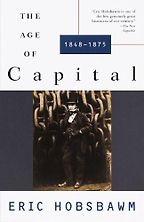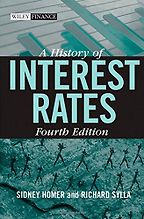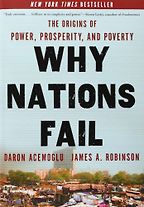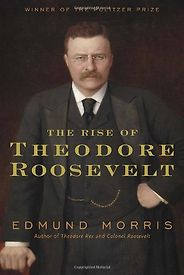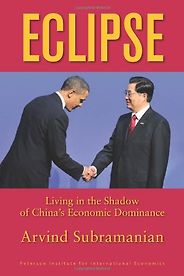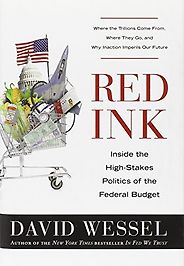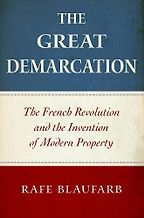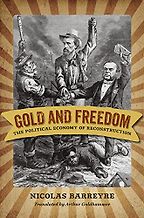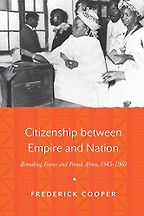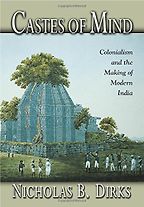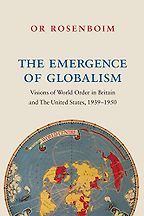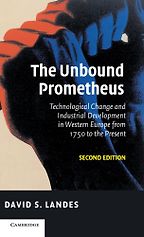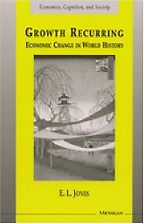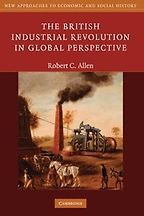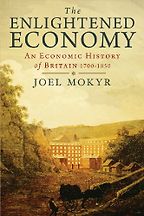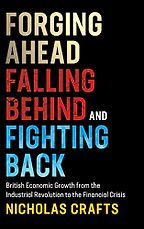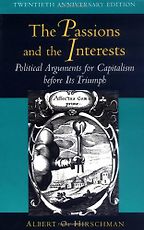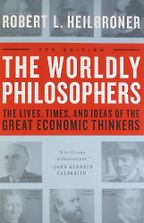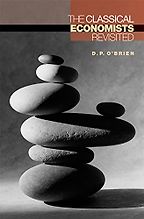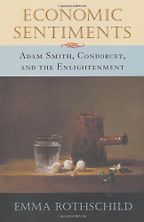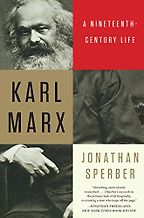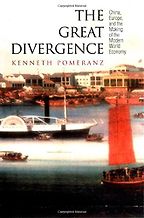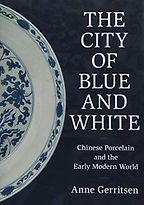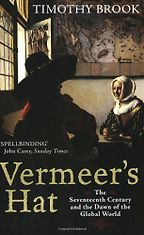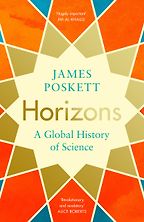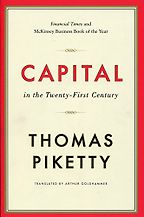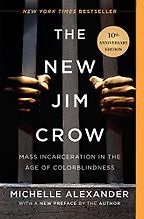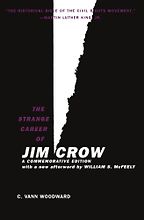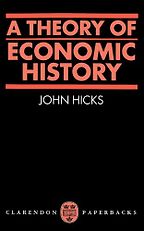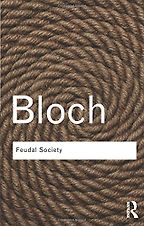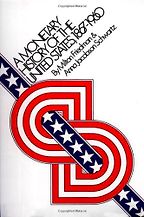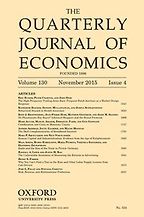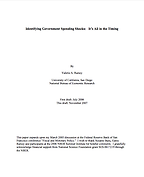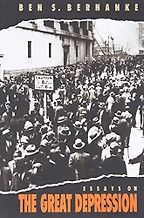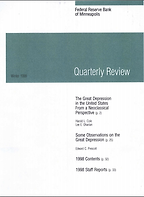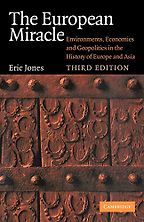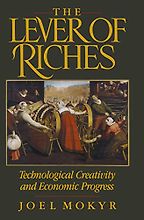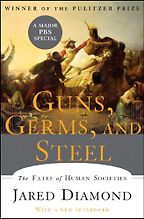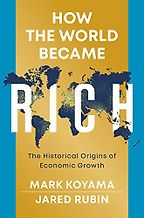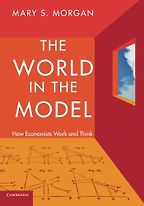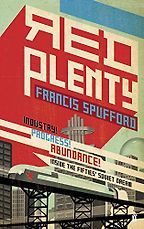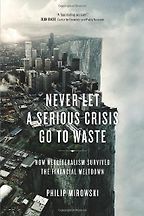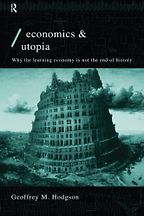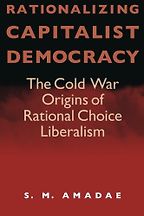Economic history books
recommended by economic historians
Last updated: December 11, 2024
Traditionally neglected in university courses, economic history has made a comeback in recent years. It’s no surprise we have an interview with Simon Johnson, winner of the 2024 Nobel economics prize, on why economic history matters. Browse more of our interviews below:
The best books on Economic History, recommended by Emma Rothschild
In time of economic crisis, studying the past can teach us much about the world economy today, says economic historian Emma Rothschild.
The best books on Why Economic History Matters, recommended by Simon Johnson
History contains useful warnings and lessons and today’s economic policymakers would do well to heed them, says the IMF’s former chief economist, Simon Johnson. He recommends books showing why economic history matters.
-

1
The Great Demarcation: The French Revolution and the Invention of Modern Property
by Rafe Blaufarb -

2
Gold and Freedom: The Political Economy of Reconstruction
by Nicolas Barreyre -

3
Citizenship between Empire and Nation: Remaking France and French Africa, 1945-1960
by Frederick Cooper -

4
Castes of Mind: Colonialism and the Making of Modern India
by Nicholas B. Dirks -

5
The Emergence of Globalism: Visions of World Order in Britain and the United States, 1939–1950
by Or Rosenboim
The best books on Historical Change and Economic Ideology, recommended by Thomas Piketty
The best books on Historical Change and Economic Ideology, recommended by Thomas Piketty
Throughout history, social and economic inequalities have been fueled and justified by different ideologies. French economist Thomas Piketty’s latest book, Capital and Ideology, looks at the advent and fall of these ideologies, and how they could evolve in the future. He recommends five great books to better understand these complex and always-evolving ideas, and their consequences for the world.
-

1
The Unbound Prometheus: Technological Change and Industrial Development in Western Europe from 1750 to the Present
by David S Landes -

2
Growth Recurring: Economic Change in World History
by Eric Jones -

3
The British Industrial Revolution in Global Perspective
by Robert C. Allen -

4
The Enlightened Economy: An Economic History of Britain 1700–1850
by Joel Mokyr -

5
Forging Ahead, Falling Behind and Fighting Back: British Economic Growth from the Industrial Revolution to the Financial Crisis
by Nicholas Crafts
The best books on Industrial Revolution, recommended by Sheilagh Ogilvie
The best books on Industrial Revolution, recommended by Sheilagh Ogilvie
The Industrial Revolution transformed the world forever by enabling self-perpetuating economic growth. But historians are still at odds about why the industrial revolution happened where it did and when it did. Here, Sheilagh Ogilvie, Chichele Professor of Economic History at All Souls College, Oxford, guides us through the debates and why they are still relevant today.
-

1
The Passions and the Interests
by Albert Hirschman -

2
The Worldly Philosophers
by Robert L Heilbroner -

3
The Classical Economists Revisited
by D. P. O'Brien -

4
Economic Sentiments: Adam Smith, Condorcet and the Enlightenment
by Emma Rothschild -

5
Karl Marx: A Nineteenth-Century Life
by Jonathan Sperber
The Best Books on the Classical Economists, recommended by Brad DeLong
The Best Books on the Classical Economists, recommended by Brad DeLong
They were an eclectic bunch, including, among others, a stock market speculator, a moral philosopher, a cleric, a lawyer and a journalist. From the late-18th to the mid-19th century, they provided the first systematic explanations of how economies work, where they fail and how they might be made to work better. Here, Brad DeLong, a professor of economics at UC Berkeley, introduces the classical economists, and suggests books to read to learn more about them and what they were trying to achieve.
-

1
The Great Divergence: China, Europe, and the Making of the Modern World Economy
by Kenneth Pomeranz -

2
Cotton: the Fabric that made the Modern World
by Giorgio Riello -

3
The City of Blue and White: Chinese Porcelain and the Early Modern World
by Anne Gerritsen -

4
Vermeer's Hat: The seventeenth century and the dawn of the global world
by Timothy Brook -

5
Horizons: The Global Origins of Modern Science
by James Poskett
The best books on Global History, recommended by Maxine Berg
The best books on Global History, recommended by Maxine Berg
From the Indian cottons that were traded around Asia and Africa in the Middle Ages, to the global dominance of the blue-and-white pottery of Jingdezhen, historian Maxine Berg introduces five books that transformed our understanding of the past millennium and are significant milestones in the development of the vibrant field of global history.
Peter Temin on An Economic Historian’s Favourite Books
Distinguished economic historian, Peter Temin, talks us through some of his favourite books. His own latest book, The Vanishing Middle Class, charts America’s regression towards a pre-industrial society: with many poor, a few rich, and not much in between.
-

1
A Monetary History of the United States, 1867-1960
by Anna Schwartz & Milton Friedman -

2
Macroeconomic Effects from Government Purchases and Taxes
by Robert Barro -

3
Identifying Government Spending Shocks
by Valerie Ramey -

4
Essays on the Great Depression
by Ben Bernanke -

5
The Great Depression in the United States from a Neoclassical Perspective
by Harold Cole and Lee Ohanian
The best books on The Lessons of the Great Depression, recommended by Robert Barro
The best books on The Lessons of the Great Depression, recommended by Robert Barro
Harvard macroeconomist Robert Barro takes issue with some common assumptions about the Great Depression, and how America got out of it.
-

1
The European Miracle: Environments, Economies and Geopolitics in the History of Europe and Asia
by E L Jones -

2
The Great Divergence: China, Europe, and the Making of the Modern World Economy
by Kenneth Pomeranz -

3
The Lever of Riches: Technological Creativity and Economic Progress
by Joel Mokyr -

4
Guns, Germs and Steel
by Jared Diamond -

5
How the World Became Rich: The Historical Origins of Economic Growth
by Jared Rubin & Mark Koyama
The best books on The Great Divergence, recommended by Davis Kedrosky
The best books on The Great Divergence, recommended by Davis Kedrosky
After a slow start, why did northwest Europe move ahead of the rest of the world in the early modern period and establish an economic dominance whose effects are felt to this day? Davis Kedrosky, a student at Berkeley and publisher of the economic history newsletter, Great Transformations, introduces ‘the Great Divergence’ and suggests some books that get to the heart of the question.
-

1
The World in the Model: How Economists Work and Think
by Mary Morgan -

2
Red Plenty
by Francis Spufford -

3
Never Let a Serious Crisis Go to Waste: How Neoliberalism Survived the Financial Meltdown
by Philip Mirowski -

4
Economics and Utopia: Why the Learning Economy is Not the End of History
by Geoffrey Hodgson -

5
Rationalizing Capitalist Democracy: The Cold War Origins of Rational Choice Liberalism
by S M Amadae
The best books on The History of Economic Thought, recommended by Niall Kishtainy
The best books on The History of Economic Thought, recommended by Niall Kishtainy
Many people feel dissatisfied with aspects of neoliberalism, but fewer know what it is or where it came from. Economic historian Niall Kishtainy recommends some of his favourite books on the history of economic thought, books that use intellectual history to examine issues confronting us in the real world.
